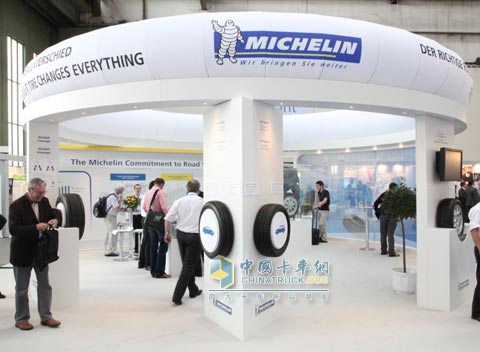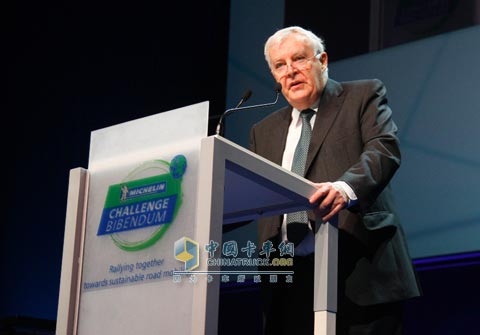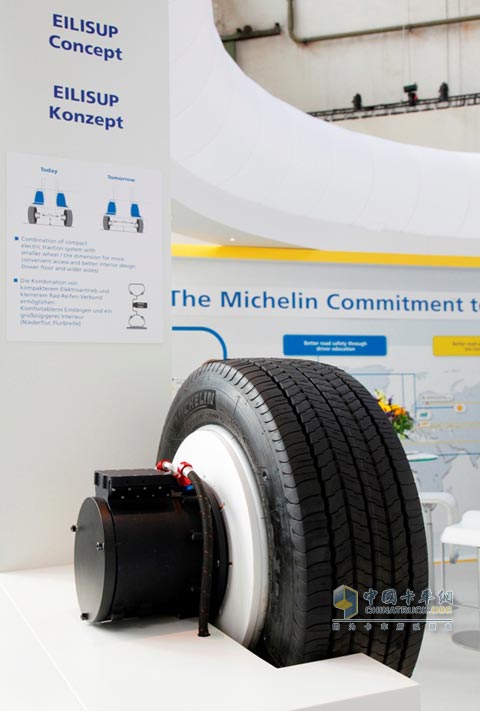On May 18th, 2011, the 11th Michelin Bibden Challenge kicked off at the "Heart of Europe" - Tembilhof Airport in Berlin, Germany, with clean, safe, connected and sustainable mobility as The main discussion and direction of development. During the five-day event, more than 6,000 representatives from political, industrial, scientific, and press circles from all over the world gathered here to discuss the challenges and solutions for sustainable road mobility. In addition to raising public awareness of the factors that influence the development of mobility on sustainable roads and demonstrating that these barriers can be overcome, the 2011 Michelin Bibiden Challenge also hopes to create itself as a unique place to propose an action plan. To expand the scope of applications for sustainable road mobility applications. Only by making common commitments through stakeholders such as public organizations and the private sector can we create cleaner, safer and more connected sustainable road mobility. The Bibiden Challenge includes a comprehensive exhibition of debates and discussion areas, technology exhibition centers, three rally events, press conferences, international forums, and the latest technology and transportation. On May 21st and 22nd, the Michelin Bibiden Challenge was opened to the public for the first time. It is estimated that more than 15,000 citizens went to experience the exhibition's more than 270 types of mass-produced prototypes or new modes of transportation, from electric motorcycles and hybrid vehicles. Alternative energy-powered buses and trucks can be described as everything. At the 2011 Bibden Challenge, Michelin showcased five innovative tires and three technological breakthroughs that are no longer limited to the tire itself. All of these developments provide solutions to some of the major problems facing the current road transport sector, and all Michelin innovations demonstrate the commitment to use tire materials more efficiently: The first automatic repair tire The unique rubber composite material presses the steel nails without any loss of pressure and immediately plugs the holes in the tread. At the same time without sacrificing other tire performance, Michelin tires reflect the "excellent balance of performance." Reducing the frequency of tire replacement means that the number of tires required for production is reduced, and spare tires are no longer needed. The vehicle can reduce nearly 30 kilograms. Driving in cities can reduce carbon dioxide emissions by 1.9 grams per kilometer. Truck concept tire The twin-axle trailer can carry the same payload as a three-axle trailer. As the total weight is reduced, the truck is more fuel efficient and can carry more cargo, thus increasing production efficiency. Small size tire/wheel hub assembly (175/70 R10) Provides the same road performance as a 14-inch tire, which can carry 15% more weight than conventional tires, but the space remains the same. New-size prototype tires require less material to be used without affecting the total mileage life and even improve fuel efficiency. The small-size hub device means that the internal space is increased, thereby giving the car manufacturer's design greater flexibility. The reduction in total weight means more vehicle mileage for city vehicles. High narrow tire Has a longer diameter to increase its grip and tire life, more energy efficient. The number of wheel revolutions needed to drive a certain distance is less, which increases the battery life by 5%. The next generation of energy-saving tires Since 1992, Michelin has developed five generations of car energy-saving tires and three generations of truck fuel-efficient tires, reducing rolling resistance by more than 40%. To date, these tires have reduced nearly 14 billion liters of fuel consumption and more than 35 million tons of carbon dioxide emissions worldwide. The Group's innovation strategy focuses on the long-term, with a view to making future mobility more environmentally friendly while providing users with superior safety performance. In-wheel motor technology Michelin has developed in-wheel motor technology based on the active wheels to help automakers adapt to the changes brought about by the development of electric power systems. Michelin's in-wheel motor integrates an electric power system and braking system. In this way, it brings a whole new technological solution that can be used to redesign vehicles to make them lighter, more compact and more spacious. Velroue Project In collaboration with government agencies and the French Petroleum/New Energy Institute (IFPEN), Renault and Michelin have jointly launched the Velroue project to test a new dual-mode utility vehicle concept and apply the new technology to hybrid vehicles. ElLisup Project Electric wheels for city buses “The cars we are driving are harmless and able to integrate into different environments. These are becoming a reality. The speed of advancement depends on us. Choose clean air or a car? For me, the answer is obvious... There is also cumulation.†This forward-looking commitment was put forward by the then-leader Edward Michelin in 1998 at the first Michelin Bibiden Challenge. Now, this promise has been technically feasible, and has enabled society to move quickly toward cleaner, safer road mobility. The purpose of the Michelin Bibiden Challenge 2011 is to bring together a broad range of stakeholders (from car enthusiasts to decision makers, including the public) to make sustainable mobility more accessible in the future. About the Michelin Bibiden Challenge After years of hard work, the Bibden Challenge has developed into a global event for the mobility of sustainable development. With its unique attraction, the event unites road transport stakeholders around the world around the same goal and works together to find Solutions to meet the challenges posed by the increasing congestion of road traffic. The goals of the Bibden Challenge are highly consistent with Michelin's corporate mission of improving the mobility of goods and humans. Michelin founded the Bibden Challenge in 1998, two of which were held in Shanghai to provide a platform for all stakeholders in the automotive world to demonstrate, test and communicate. There is no doubt that the challenge of sustainable development mobility must be solved by everyone working together. The Michelin Company successfully brought together all stakeholders involved in sustainable mobility and fulfilled Michelin's commitment to contribute to the advancement of humanity and the mobility of goods. The production of tyres that help reduce the carbon dioxide emissions of road vehicles is the focus of the Michelin R&D project. As the mobility of humans and objects is the strategic core of the Michelin Group, this R&D focus further proves the company's continued attention to the environment and is also the reason why Michelin has to organize the Bibenden Challenge. Past Michelin Bidden Challenges Review: 1998: Clermont-Ferrand - Paris (France) 2000: Clermont-Ferrand - Paris (France) 2001: Fontana, California (USA) 2002: Heidelberg - Strasbourg - Paris (Germany and France) 2003: Sonoma, California (USA) 2004: Shanghai (China) 2005: Kyoto - Nagoya (Japan) 2006: Paris (France) 2007: Shanghai (China) 2010: Rio de Janeiro (Brazil) 2011: Berlin (Germany) About Michelin Michelin is the world's leading tire manufacturer with 110,000 employees and sales offices in more than 170 countries around the world. Michelin is committed to the improvement of global sustainable mobility. The tires it designs, manufactures and sells are widely used in airplanes, automobiles, bicycles, heavy bulldozers, agricultural machinery equipment, heavy trucks, motorcycles, and even American space vehicles. At present, Michelin has 70 factories in 18 countries on five continents. In addition, Michelin also publishes travel guides, hotel and restaurant guides, maps, road maps, and electronic services through ViaMichelin.com. Michelin has technology centers in Europe, the United States, and Japan, providing Michelin with continuous support for R&D and technological innovation. China leading manufacturers and suppliers of Super Glue,Ca Glue, and we are specialize in Crazy Glue,Strong Glue, etc. Super Glue,Ca Glue,Crazy Glue,Strong Glue KRONYO United Co., Ltd. , https://www.kronyotirerepairkit.com
2011 Michelin Bibiden Challenge Michelin Booth 
He Liye, Managing Partner of the Michelin Group, spoke 
2011 Michelin Bibiden Challenge Michelin Innovative Products
October 24, 2023